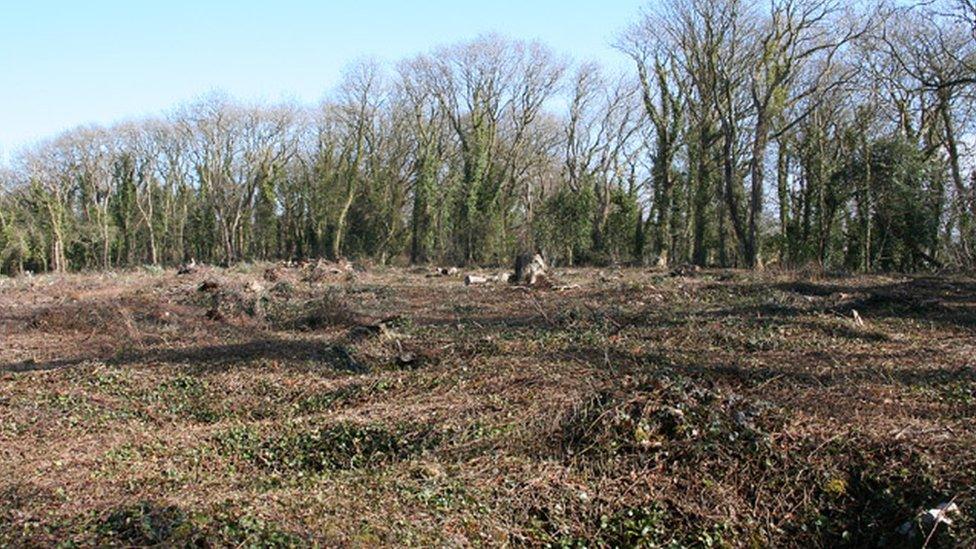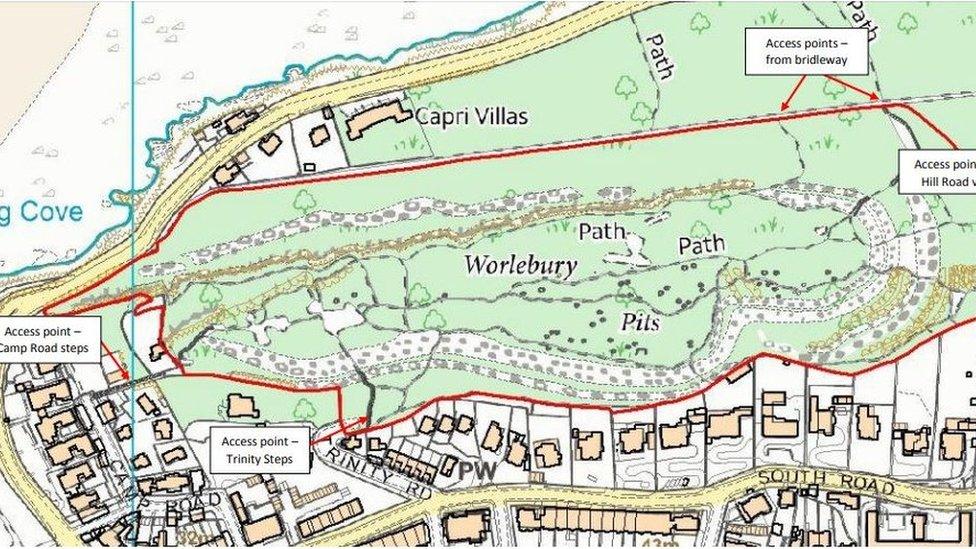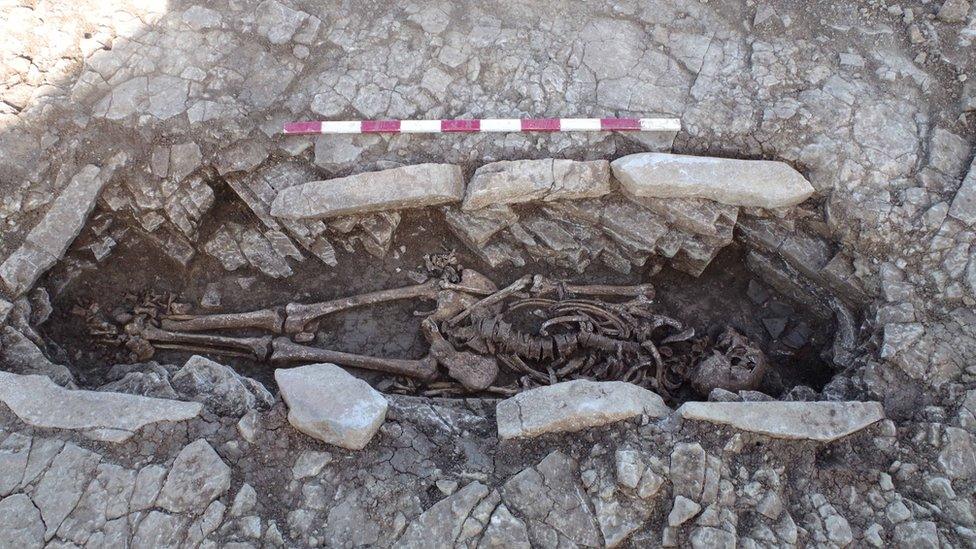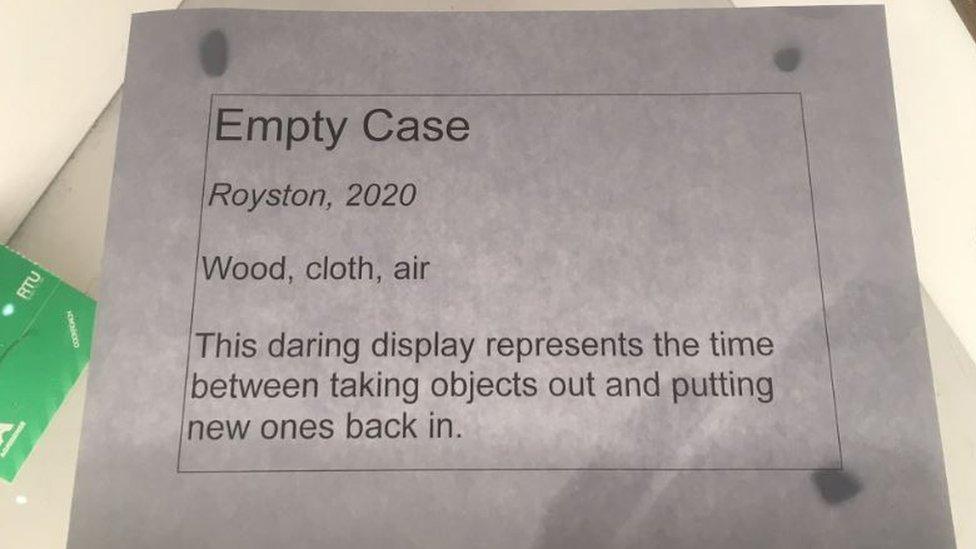Trees to be cleared to preserve Somerset Iron Age fort site
- Published

North Somerset Council said cutting down the trees was necessary to preserve the site
Plans have been revealed to clear thousands of trees a to help preserve the site of a rare Iron Age hill fort.
North Somerset Council said removing the trees to uncover the 2,000-year-old hill fort in Worlebury Camp would also have "significant" biodiversity benefits.
But some locals have said in the face of climate issues the trees should not be cut down.
The council is accepting comments on the plans until 28 February.
The local authority has applied to the Forestry Commission for a licence to cut down the trees.
If the licence is approved the council would then ask the National Lottery Heritage Fund for a grant to carry out the necessary work.

The fort at Worlebury Camp was built about 2,000 years ago
Alessandra Perrone, heritage at risk project officer at Historic England, said for the past 200 years the principal threat to the survival of the site had been the overgrowth and trees and scrub.
She added: "This, and its alienation from the town it overlooks, has resulted in its inclusion on the Heritage At Risk Register since 2016."
John Crockford-Hawley, the council's heritage and restoration champion, said the hill fort was "part of the nation's story" and should be protected so everybody could fully appreciate it.
However, resident Michelle Roberts said the loss of woodland would be of great detriment to the surrounding communities.
"Weston only has one wood and we need to keep as much of it as we can," she said.
Kevin Roberts, who also lives near Worlebury Camp, said the council should have publicised its plans more and he wanted it to reconsider them.
Mr Roberts said: "There will be no shelter from the high winds that the area is susceptible to and no shelter for wildlife and people walking their dogs and just general recreation."
- Published8 January 2020

- Published7 January 2020

- Published27 January 2020
